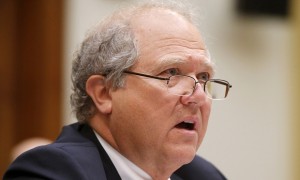Latest News
SIGAR: US still lacks anti-corruption strategy in Afghanistan
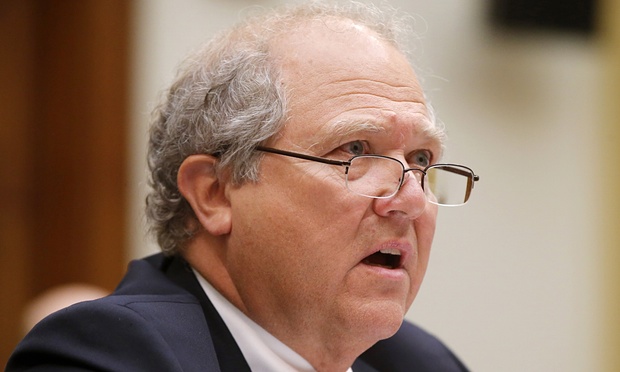
Special Inspector General for Afghanistan Reconstruction John Sopko said that the United States still lacks a plan for reducing the impact of corruption in Afghanistan.
The United States still lacks a plan for reducing the impact of corruption in Afghanistan, Special Inspector General for Afghanistan Reconstruction (SIGAR) John Sopko said in testimony for the US Senate Committee on Appropriations.
“The United States continues to operate without a comprehensive overall strategy for coordinating and executing effective measures to reduce the malign influence of corruption in Afghan society,” Sopko stated.
The inspector general argued that corruption represents one of the biggest challenges to the Afghanistan reconstruction effort that has been funded by the United States.
“Kabul relies heavily on customs receipts for domestic revenue, but corruption severely constricts the actual flow of funds to its treasury, while also adding to the risk of ‘donor fatigue’,” Sopko said.
“The risk of fraud, waste, and abuse of reconstruction funds in Afghanistan is growing, even as the ability to exercise effective oversight is increasingly constrained,” Sopko stated.
The inspector general noted that Afghanistan’s reconstruction has already cost $113 billion, and will continue for years, drawing additional billions in resources.
“The success of this effort critically depends on the US government’s ability to efficiently and effectively provide reconstruction assistance to Afghanistan and ensure that funds are not wasted or abused,” Sopko argued.
The inspector general added that much needs to be done before Afghanistan can ensure its own stability and security.
US Congress has appropriated more money to reconstruct Afghanistan than the United States spent to rebuild Western Europe after World War II, according to SIGAR.
SPUTNIK

Latest News
Iranian official: Only vulnerable points of Afghanistan’s border will be walled and fenced
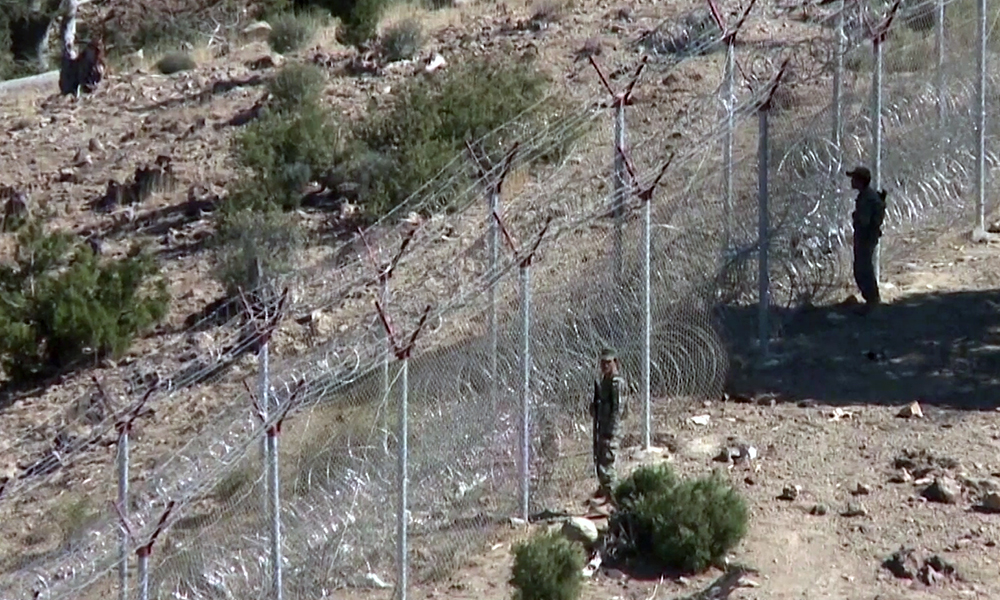
An Iranian security official has said that the entire border of Iran with Afghanistan will not be fenced, rather barriers will be created only at vulnerable points.
Iranian army has announced that the plan to create barriers at the border with a four-meter concrete wall, barbed wire and fence will be implemented within three years.
“In some northwestern and eastern borders, there are threats from the other side of the borders that we are countering,” said Qassem Rezaei, Iran’s deputy police commander.
He added that drug trafficking, human trafficking, and even terrorist infiltration may take place through these borders.
Meanwhile, the Minister of Interior of Iran Ahmad Vahidi has announced that over 1.3 million illegal foreign nationals have returned to their country in the past year.
He added that illegal citizens should leave Iran as they are not allowed to stay.
Latest News
Hanafi meets WHO regional director, stresses need for cooperation
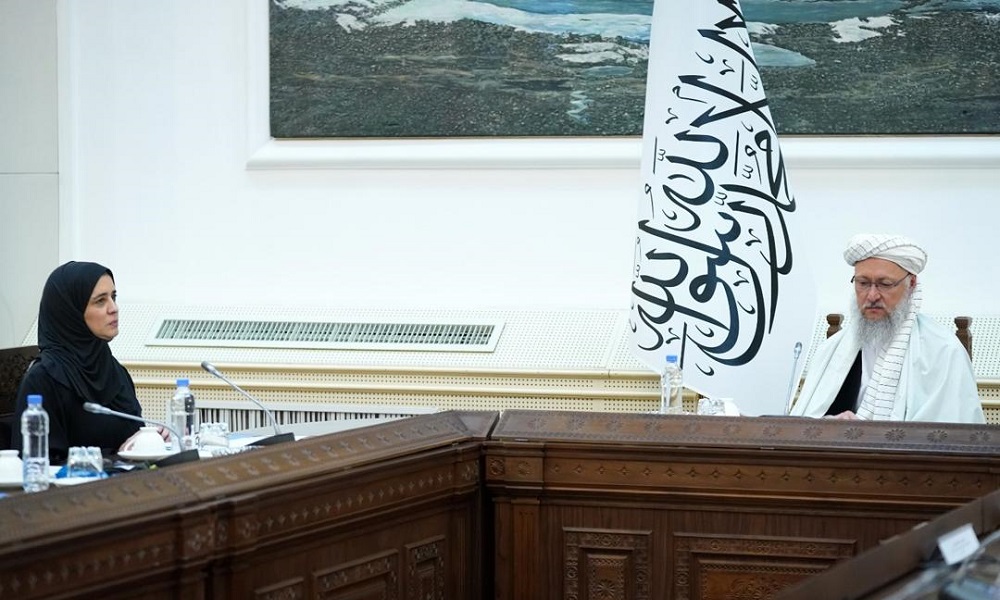
Deputy Prime Minister for Administrative Affairs Abdul Salam Hanafi on Sunday met with WHO Regional Director for the Eastern Mediterranean, Hanan Balkhy, and called for the organization’s cooperation including in the establishment of clinics in remote areas and training of specialists.
According to a statement released by his office, Hanafi pointed out that since the Islamic Emirate in Afghanistan regained power, there has been progress in various fields, including the fight against drug production and trafficking, the roundup and treatment of drug addicts, the eradication of corruption and nationwide security.
He asked the WHO to hand over Afghanistan’s seat to the representative of the Islamic Emirate and restore Afghanistan’s membership in meetings of the executive board and leadership meetings of the Mediterranean region.
Hanafi also called for the cooperation of international organizations in providing alternative livelihoods for poppy farmers and in providing assistance to flood victims.
While stressing that the eradication of polio is one of the priorities of the Islamic Emirate, Hanafi asked the WHO to activate polio diagnosis laboratories and supply vaccines, establish a cancer treatment center, prevent malnutrition among children and provide safe drinking water.
According to the statement, WHO official Balkhy said in the meeting that the health issue is non-political and one of the priorities of the organization.
She pointed to the achievements of the Islamic Emirate in various fields and expressed hope that better conditions will be provided for Afghans in the health and education sector.
Balkhy explained that WHO, together with other international organizations and the European Union, has a three-year project that includes the establishment of health centers in different provinces of Afghanistan.
She also expressed her appreciation for the efforts of the Islamic Emirate in the fight against polio and added that she will discuss the issue of providing alternative livelihoods for Afghan farmers with the WHO and other relevant organizations.
Latest News
OIC summit urges IEA to respect girls’ right to education
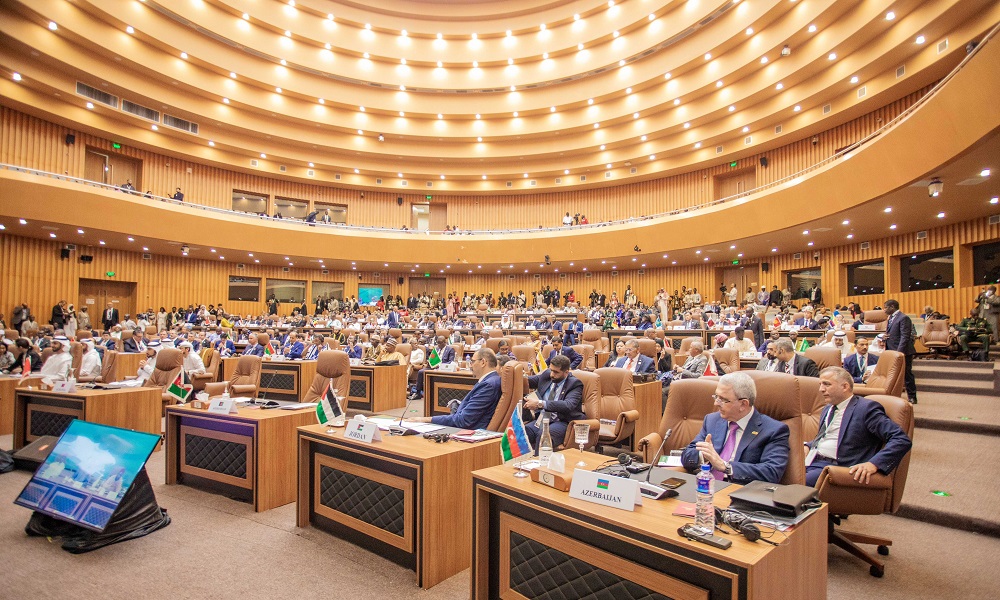
The 15th summit of the Organization of Islamic Cooperation (OIC) in Gambia on Sunday called on the Islamic Emirate of Afghanistan (IEA) to respect Afghan girls and women’s right to education and work.
In a declaration, OIC described the right to education and work as the fundamental rights of Afghan girls and women, and called for more communication with the IEA authorities on these issues.
Additionally, the participants emphasized the need for more efforts to address the challenges related to ethnic groups, drugs, terrorism, and social issues to ensure inclusive governance and sustainable peace and stability in Afghanistan.
“We also emphasize the need to make more efforts to address the challenges associated with ethnic groups, terrorism, drugs and social aspects for inclusive governance to achieve sustainable stability,” the declaration said.
Delegations from the 57 OIC member states attended the conference, organized by the Organization of Islamic Cooperation under the theme “Enhancing unity and solidarity through dialogue for sustainable development.”.
The summit was also attended by an IEA delegation.
-

 Sport4 days ago
Sport4 days agoSorkh Poshan Khafi and Khadim FC winners in their ACL matches
-
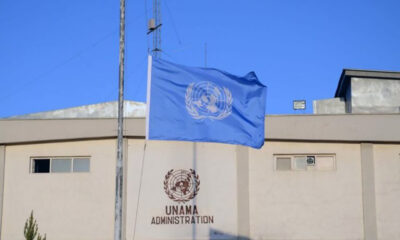
 Latest News5 days ago
Latest News5 days agoUNAMA issues latest rights report, notes ongoing challenges for women, girls and media
-
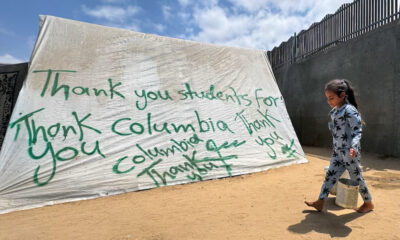
 World4 days ago
World4 days agoWhy Palestinians can count on American students but not Arab allies to protest
-

 Sport4 days ago
Sport4 days agoAbu Muslim and Attack Energy win in ACL matches
-

 Sport4 days ago
Sport4 days agoBairstow, Rossouw help Punjab beat Chennai in IPL
-

 Sport4 days ago
Sport4 days agoFour Afghans included in Refugee Olympic Team for Paris 2024
-
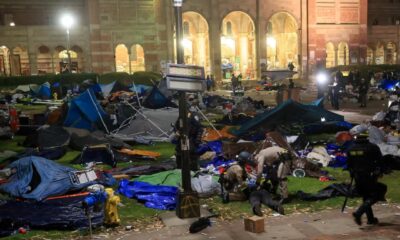
 World4 days ago
World4 days agoCalifornia police flatten pro-Palestinian camp at UCLA, arrest protesters
-

 Latest News4 days ago
Latest News4 days agoFive dead, 24 injured in traffic accident in Samangan

